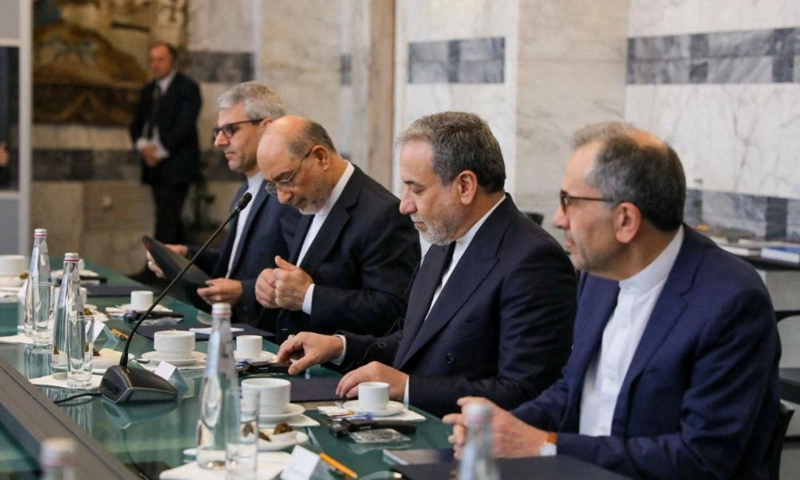Iran and the United States have agreed to move discussions on a potential nuclear deal into an expert-level phase, with technical teams tasked with drafting a framework for an agreement, according to Iranian Foreign Minister Abbas Araqchi.
Following a second round of indirect negotiations, held in Rome on Saturday, Araqchi described the nearly four-hour session—mediated by an Omani official relaying messages between the two parties—as productive and carried out in a “constructive atmosphere.”
Araqchi said the two sides reached a better mutual understanding on key principles and goals. “We were able to make some progress and agreed that talks will continue. The next phase will involve expert-level meetings starting Wednesday in Oman,” he said on Iranian state television.
These technical discussions will focus on developing the structure of a potential agreement. Senior negotiators from both sides are scheduled to reconvene in Oman next Saturday to review the experts’ work and evaluate its alignment with the agreed principles.
Despite the apparent progress, Araqchi emphasized the need for caution. “We’re not overly optimistic, but we are moving forward carefully. There’s no reason for either excessive hope or despair,” he said, echoing recent cautious remarks from Iran’s Supreme Leader Ayatollah Ali Khamenei.
There was no immediate response from the US following the Rome talks. However, US President Donald Trump reiterated his stance on Iran, telling reporters a day earlier, “I simply want to stop Iran from acquiring a nuclear weapon. That’s non-negotiable. I want to see Iran become successful and prosperous—but without nuclear arms.”
Trump previously withdrew the US from the 2015 nuclear agreement during his first term in 2018 and has since threatened military action if Iran does not agree to a new deal to limit its nuclear activities.
Tehran insists its nuclear program is peaceful but has signaled readiness to consider limited restrictions in exchange for the lifting of international sanctions.
Meanwhile, concerns remain over Israel’s position. A senior Israeli official and two additional sources said that Israel, a staunch opponent of the 2015 accord, has not ruled out a potential strike on Iranian nuclear facilities in the coming months.
Since 2019, Iran has significantly exceeded the uranium enrichment limits outlined in the 2015 deal, amassing stockpiles that far surpass what is deemed necessary for civilian energy use.
A senior Iranian official, speaking on condition of anonymity, outlined Iran’s non-negotiable positions: it will not dismantle its centrifuges, completely halt enrichment, or reduce its uranium stockpile below levels agreed to in the previous accord.










